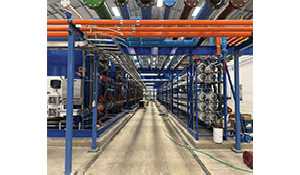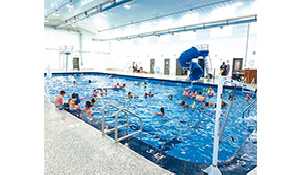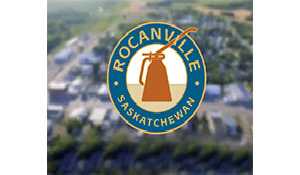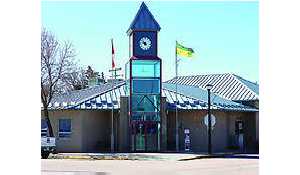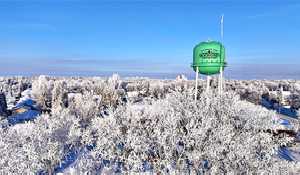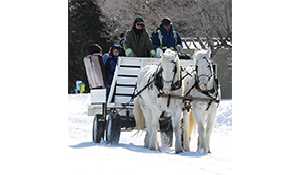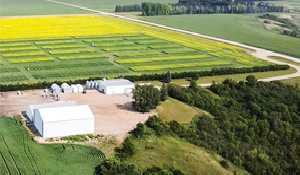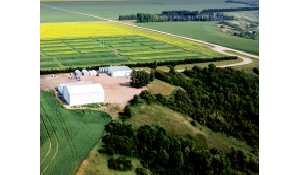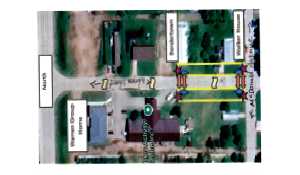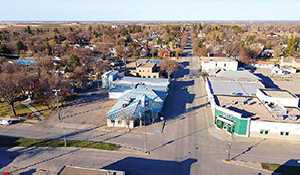Sask Budget includes $1 billion surplus
Funding to start planning new health facility for Esterhazy, funding for new school for Carlyle, $10 million for new long term care centre at Grenfell
March 22, 2023, 2:58 pm


Saskatchewan's 2023-24 Provincial Budget, tabled today by Deputy Premier and Finance Minister Donna Harpauer, has a projected $1.0 billion surplus, and includes a lot of capital spending in southeast Saskatchewan, including funding to start planning new health facility for Esterhazy, funding for new school for Carlyle, and $10 million for new long term care centre at Grenfell.
"Saskatchewan is growing at its fastest pace in more than a century," Harpauer said. This budget is designed to ensure that growth continues and that it's growth that works for everyone."
There are no tax increases and no new taxes included in this budget. When taxes, utilities and housing costs are combined, Saskatchewan is the most affordable place to live in Canada for a family of four.
Saskatchewan's economy is expected to lead all provinces in growth in 2022. Momentum is forecast to continue in 2023 with Saskatchewan achieving the second highest growth according to private sector forecasts. The economic growth is driven by strong commodity prices, solid job growth, increased private investment and a rebound in crop production from the 2021 drought.
More people than ever are working in Saskatchewan. More than 20,000 full time jobs were created in 2022 and employment is expected to continue to grow this year and over the medium-term.
$1 billion surplus
The 2023-24 Budget projects a $1.0 billion surplus.
Revenue of $19.7 billion is forecast in the 2023-24 Budget, up $2.5 billion or 14.7 per cent, from last year's budget. The higher revenue forecast is largely due to $9.6 billion in taxation revenue, a $1.5 billion increase over last year with Corporate Income, Personal Income and Provincial Sales Tax revenue reflecting a strong economy.
Non-renewable resource revenue is forecast to be $3.3 billion, up $435 million over last year's budget, largely driven by solid potash and oil price expectations.
"With a growing economy and strong finances in Saskatchewan, our government will pay down up to $1.0 billion in operating debt this fiscal year, reducing interest costs and investing those savings into needed services, programs and capital," Harpauer said.
Including last fiscal year, debt retirement and lower borrowing have generated $117 million in annual interest savings.
Expense in the 2023-24 Budget is forecast to be $18.7 billion, up $1.0 billion or 5.9 per cent, from last year's budget.
Increase to health care funding
"This budget delivers a 6.7 per cent increase to the Ministry of Health to $6.9 billion, strengthening the health care system and taking significant steps to further attract, train and retain doctors, nurses and other key health care professionals in a growing province," Harpauer said.
The 2023-24 Budget includes $98.8 million, an increase of $82.7 million over last year's budget, for the Health Human Resources (HHR) action plan. The plan, funded through the ministries of Health, Advanced Education and Immigration and Career Training, will recruit, train, incentivize and retain health care professionals.
In Health, $55.5 million in this budget, an increase of $44.9 million from last year, will recruit 250 full-time positions and expand part-time positions in rural and remote areas around the province. The budget also includes support for recruiting internationally educated health care workers and for the College of Medicine for new academic and research positions, special residency seats and family medicine seats.
This budget invests $518 million into mental health and addictions programs and services, including a targeted investment of $12.4 million over last year, representing the highest investment ever in Saskatchewan for these programs and services. Mental health and addictions funding now makes up 7.5 per cent of overall health spending.
In Advanced Education, $25.2 million in new funding will expand training programs. Approximately 550 seats will be added across 18 health training programs to help address critical markets. The budget includes $10 million to support the continuation of a 150-seat expansion in nursing programs and $2.4 million to train internationally educated health care providers.
Immigration and Career Training supports the HHR action plan with $5.2 million in this budget to support expansion of post-secondary seats, as well as initiatives to fill current vacancies through the licensing of internationally educated health care workers already in Saskatchewan.
This budget includes a $42.5 million increase to fund the largest volume of surgical procedures in the history of the province. 6,000 more surgeries will be performed this year, bringing the total to 103,000 and reducing the waitlist to its pre-pandemic level by March 2024, a year ahead of schedule.
A $39.0 million increase in this budget supports seniors' care and includes a number of important initiatives, including $17.6 million to procure additional long-term care beds in Regina and $9.3 million to support third-party long-term care providers. There is $5.5 million to hire 75 continuing care assistants (CCAs) for the final phase of the three-year $18.4 million government commitment to hire 300 CCAs to deliver home care and support services for seniors living in long-term care facilities.
A $7.0 million increase for more medical imaging, primarily CT and MRI scans, and a $2.6 million increase for more endoscopy procedures are included in this budget to help reduce wait times.
$4 billion for education
The 2023-24 Budget includes more than $4.0 billion for Prekindergarten to Grade 12 and post-secondary education.
"More than 189,000 students are attending Kindergarten to Grade 12 in Saskatchewan, the most in more than 20 years," Harpauer said. “Growth that works for everyone means every student receives the best possible education.”
In this budget, the Ministry of Education provides record investment of $3.1 billion, an increase of $192.8 million or 6.7 per cent over last year, to support schools, early learning, child care and libraries in a growing province. Saskatchewan's 27 school divisions will receive $2.0 billion in operating funding, an increase of $49.4 million over last year.
There is $23.0 million to support the startup and operation of the new Saskatchewan Distance Learning Corporation - Sask DLC. The new corporation offers more opportunities for students to access a wide variety of online courses from Kindergarten to Grade 12, as well as high school electives. Grade 12 completion and electives will be available to adult students as well.
This budget includes $382.4 million for early learning and child care, an increase of $72.1 million or 23.3 per cent over last year. The funding supports young families in our province, helping make life more affordable. It will reduce child care fees for families of children up to the age of six to $10 per day as of April 1, this year.
This budget includes $764.8 million for the post-secondary education sector this year, an increase of $24.5 million or 3.3 per cent. It includes $47 million for student supports, a 24 per cent increase from last year due to growing use of the Student Aid Fund and the Saskatchewan Advantage Scholarship. There is also $65 million for the Graduate Retention Program, which provides up to $20,000 in tax credits to post-secondary students who stay and work in Saskatchewan after graduation.
Record spending on Social Services and Assistance
"Saskatchewan's growing economy means more people are working in this province and fewer people require income assistance," Harpauer said. "At the same time support is increasing for those who need it. That's growth that works for everyone."
The 2023-24 Budget for social services and assistance is a record $1.7 billion.
This budget includes an additional $26.6 million in benefits to support people with low incomes, families and seniors. There are increases to benefits for Saskatchewan Income Support, Saskatchewan Assured Income for Disability, the Senior's Income Plan, and the Personal Care Home Benefit.
A $13.5 million increase for Social Services community-based service delivery partners is part of Government's total $17.6 million increase for community-based organizations (CBOs) which are also funded through the ministries of Education, Health, Justice and Attorney General and Corrections, Policing and Public Safety.
"CBOs have a critical role in helping create positive outcomes and a better quality of life for Saskatchewan's people who need support and assistance," Harpauer said. "This increase helps organizations address operational pressures and recruit and retain qualified staff."
Increased funding for safety and justice
The 2023-24 Budget includes over $1.0 billion in investments in public safety and the justice system.
"Operational funding for second stage housing ensures women in dangerous situations can safely leave and stay away from abusive partners," Harpauer said. "This budget includes a new investment of $876,000 over three years to support survivors of interpersonal violence with the expansion of counseling services for clients living in second stage housing."
Over $27.5 million in interpersonal violence supports and services are included in this budget.
The 2023-24 Budget invests in police and law enforcement initiatives, including $7.0 million to establish the new Saskatchewan Marshals Service (SMS) to increase policing capacity within the province, with a focus on rural and remote areas.
When fully operational by mid-to-late 2026, the SMS will have approximately 70 officers, providing an additional law enforcement presence across Saskatchewan, supporting RCMP and municipal police operations were appropriate.
Focus on trade and investment
The 2023-24 Budget includes a $1.4 million increase to open a trade office in Germany - the fourth largest economy in the world and the economic, financial and manufacturing hub of the European Union. The investment, which is part of the $19.3 million International Trade and Investment Strategy, will advance the province's economic interests abroad. The new office will join existing trade offices in the United Kingdom, United Arab Emirates, Mexico, Vietnam, Japan, India, Singapore and China.
Officials in these offices connect Saskatchewan businesses with investors and customers and provide on the ground support, with knowledge of local business culture, rules and regulations in key markets.
"Those efforts are paying off. Saskatchewan's merchandise exports rose from $37.0 billion in 2021 to $52.4 billion in 2022 - an increase of 41.6 per cent," Harpauer said. "More exports abroad means more jobs here at home. That's growth that works for everyone."
The 2023-24 Budget includes the highest level ever of Municipal Revenue Sharing - $297.9 million, an increase of $35.3 million or 13.4 per cent, from last year's budget. The budget includes $503 million of direct provincial support to municipalities, an increase of $54.5 million or 12.2 per cent over last year's budget, primarily due to higher revenue sharing, the provincial portion of infrastructure funding and a number of grants and initiatives from across government.
The 2023-24 Budget includes $249.1 million in targeted funding for Indigenous and Métis people and organizations, representing an increase of 6.8 per cent from last year.
Increased capital spending
"Our government continues to build highways, schools, hospitals and other important projects that a growing province needs," Harpauer said. "With a record $3.7 billion included for capital in the 2023-24 Budget and $15.2 billion in planned capital investment over the next four years, that's growth that works for everyone."
The 2023-24 Budget includes $337.6 million for health care capital, an increase of $181.0 million from last year. This includes major ongoing construction at the Prince Albert Victoria Hospital and the Weyburn General Hospital replacement, and funds for the start of planning for a new integrated health care facility for Esterhazy.
This budget invests $442.9 million into transportation capital, including over 1,000 kilometres of improvements on provincial highways. Significant projects include twinning near Rowatt and Corinne on Highways 6 and 39 between Regina and Weyburn and completing passing lanes and widening on Highway 5 from Saskatoon to Highway 2, and planning for construction to extend twinning on Highway 5 east of Saskatoon.
The 2023-24 Budget includes $152.3 million for education capital, largely for five new school capital projects, and support for the ongoing planning and construction of 15 new schools including a new K-12 school in Carlyle, and the renovation of five existing schools.
This budget includes $348.1 million for municipal infrastructure and Crown corporations will invest $2.1 billion into major capital in 2023-24, largely through SaskPower, SaskEnergy and SaskTel for a number of electricity generation, gas transmission and distribution and communication network projects.



